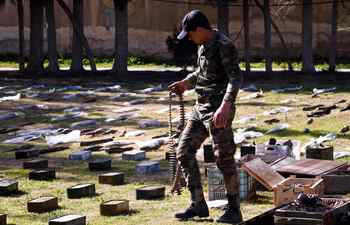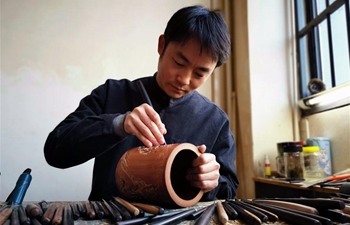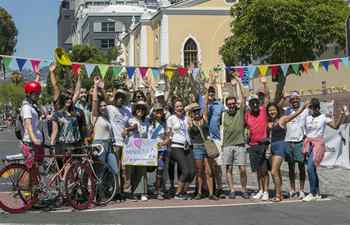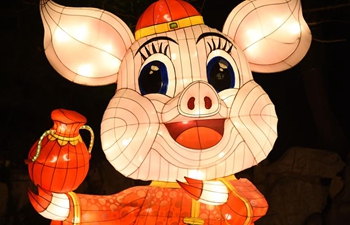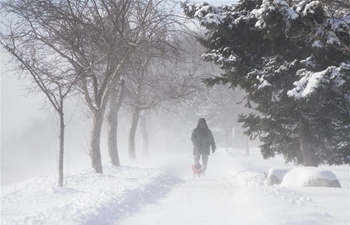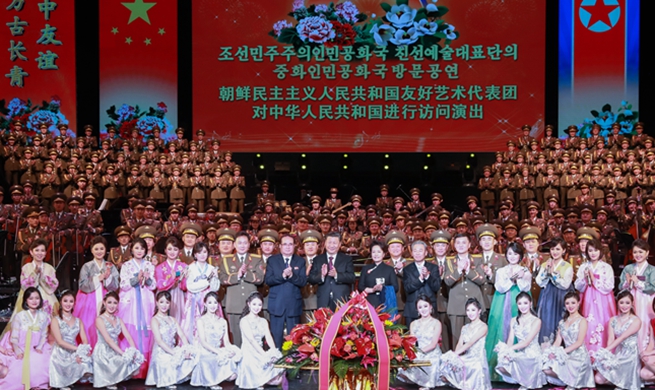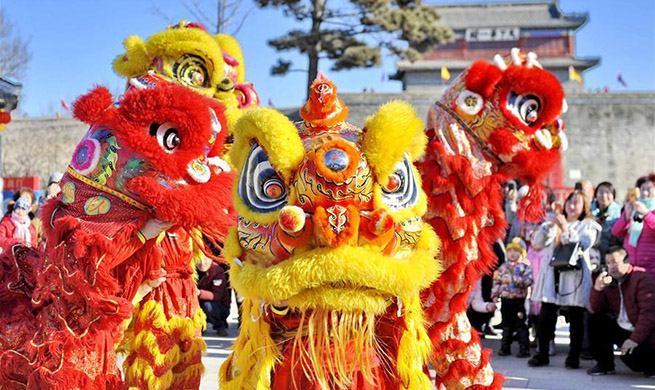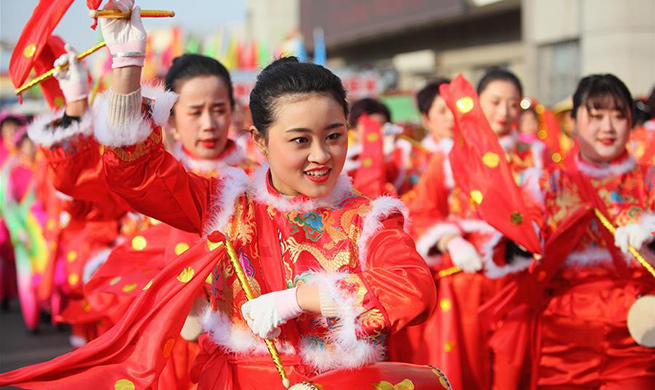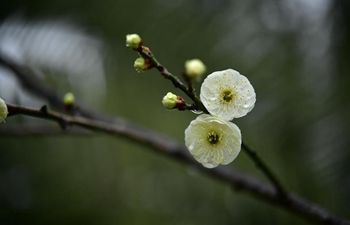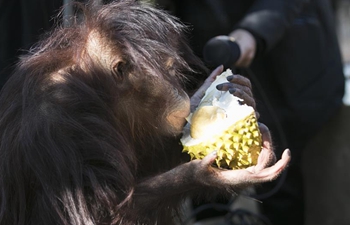SAN FRANCISCO, Jan. 27 (Xinhua) -- For a woman in her 80s, Ingrid Rubens looks very healthy with an exuberant smile on her face, but she admits she would not have led a happy, long life without the help of the Chinese people decades ago.
"The Chinese people are wonderful. Our lives were saved because of them," said Rubens, a resident of the San Francisco Bay area and one of the Jewish refugees who fled Nazi-occupied Europe for Shanghai in eastern China during World War II.
Rubens joined hundreds of people at a Jewish community center in San Rafael, Northern California, on Sunday to commemorate International Holocaust Remembrance Day. Most of them were in their 80s or 90s, and some of them were accompanied by their children.
In a fully packed room, these people with similar experiences shared their stories during the social turmoil and recalled China as a safe haven when almost all other countries closed their borders to Jewish refugees.
After Germany annexed Austria in March 1938, an international conference was convened in Evian, France, to promote the emigration of Jewish refugees in Austria and Germany. However, delegations from the 32 participating nations, aside from the Dominican Republic, failed to come to any agreement about accepting the Jewish refugees.
Shanghai was the first city in the world which opened doors to Jews. According to the Shanghai Jewish Center, from 1938 on, some 20,000 Jewish refugees from Germany and Austria escaped to Shanghai. By the end of the war, the Chinese coastal city was home to approximately 24,000 Jews.
Rubens' parents were very fortunate to obtain a visa to Shanghai. When they left their home in East Prussia in 1939, Rubens was no more than 2 years old. But she remembered how difficult life was in the "ghetto."
"No garbage collection, no running water, no toilets. It was hard," recalled Rubens. "The Japanese made it very difficult."
In Japanese-occupied Shanghai, the Jewish refugees were put in a restricted area known as "the Shanghai Ghetto."
Compared with the European Jews, Inna Mink, 91, had a better life during that time because she was born in Shanghai to a Russian Jewish family.
Though her school was turned into a concentration camp for Allied prisoners of war by the Japanese, she said their life was not "bothered" by the Nazis at all.
"As a matter of fact, in the days I lived in Shanghai, we weren't even aware of Hitler and all that," said Mink, who now lives in San Francisco.
"Shanghai for us who were born there was a magnificent world," she said. "I still remember our address in Shanghai."
In Shanghai, some Chinese families took in the Jewish refugees before they could find a place to live on their own. Such homes have been preserved to commemorate this part of history.
Richard Waxman, the organizer of Sunday's gathering, recently came back from a tour of the Jewish settlement and such homes in Shanghai.
"Shanghai was the first city in the entire world to say yes to Jews coming in," he said. From Shanghai, the Jews were able to go to the United States, South America, Central America and other countries, he added.
"I didn't know it was such a thriving Jewish community who, for the first time in decades, was able to live just as people in Shanghai until the Japanese came in and put them in the ghetto," Waxman said.
He also visited the Shanghai Jewish Refugees Museum, which exhibits historical photos and artifacts. Some of the photos show the friendship of Jewish refugees and their Chinese friends in the Shanghai Ghetto.
"They turned the Jewish temple into a museum. It is beautiful and well done, because that's more important to tell the story and reach more people," Waxman said.




